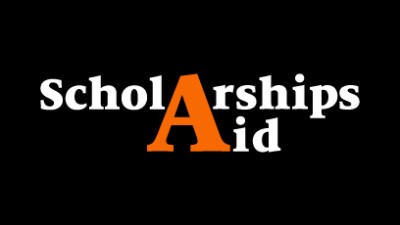Minors
- RIT/
- RIT Kosovo/
- Academics/
- Minors
Minor Advise
Office of Academic Services
Phone: + 383 38 66 00 00
E-mail: academicaffairs@auk.org
Minor Courses
At RIT Kosovo (A.U.K), a minor is defined as a thematically related set of courses consisting of no fewer than 15 semester credit hours taken from a discipline or an interdisciplinary area distinct from the student’s primary program of study. Completion of a minor is optional and results in a formal designation on a student’s academic transcript upon graduation. In order to complete a minor the student must take two additional courses from the chosen Immersion discipline. If a student chooses to complete one of the four minors, it is necessary to fill out a Minor Authorization form.
Note: If the student does not complete and submit the form to Academic Affairs Office the student will not be certified for the minor and the minor will not be listed in the student’s official record.
Economics
Literature and Media
International Relations
Political Science
Public Policy
Anthropology and Sociology
Select a Minor Course to read content
An economics minor provides a systematic analysis of economic issues through the study of the allocation of scarce resources into production and the distribution of production among the members of society. This minor is closed to students with a sub-plan in economics.
TOTAL CREDITS 15
| Prerequisite Course: | Credits | |
| ECON–101 | Principles of Microeconomics | 3 |
| Required courses: | ||
| ECON–201 | Principles of Macroeconomics | 3 |
| Theory and Policy (chose two or three courses) | ||
| ECON–401 | Intermediate Microeconomic Theory | 3 |
| ECON–405 | International Trade and Finance | 3 |
| ECON–421 | Natural Resource Economics | 3 |
| ECON–422 | Benefit-Cost Analysis | 3 |
| ECON–431 | Monetary Analysis and Policy | 3 |
| ECON–441 | Labor Economics | 3 |
| ECON–448 | Development Economics | 3 |
| Quantitative (chose one or two courses) | ||
| ECON-401 | Intermediate Microeconomic Theory | 3 |
| ECON-403 | Econometrics I | |
The Literature and Media minor gives students the opportunity to explore the areas of literature, linguistics, and creative writing. The minor introduces students to texts written in Literature and Media minor, acquaint them with a variety of historical periods and geographical regions, create an awareness of methods and theories of analysis, and provide an introduction to critical or creative writing.
TOTAL CREDITS 15
| Required courses: | Credits | |
| ENGL–210 | Literature, Cultural Studies | 3 |
| Elective | ||
| ENGL–307 | Mythology and Literature | 3 |
| ENGL–316 | Global Literature | 3 |
| ENGL–391 | Dangerous Texts | 3 |
| ENGL–315 | Digital Literature | 3 |
| ENGL–410 | Film Studies | 3 |
The international relation minor exposes students to the fundamental concepts and approaches of international relations. Issues of conflict, cooperation, continuity, and change are explained through a variety of subjects and case studies.
TOTAL CREDITS 15
| Required courses: | Credits | |
| POLS–120 | Introduction to International Relations | 3 |
Elective Courses (chose four additional courses) |
||
| POLS–205 | Ethics in International Politics | 3 |
| POLS–210 | Comparative Politics | 3 |
| POLS-280 | Artificial Intelligence and the Political Good | 3 |
| POLS-320 | American Foreign Policy | 3 |
| POLS-325 | International Law and Organizations | 3 |
| POLS–330 | Human Rights in Global Perspectives | 3 |
| POLS–335 | Politics in Developing Countries | 3 |
| POLS–445 | Terrorism and Political Violence | 3 |
| POLST-525 | Special Topics in Political Science | 3 |
The political science minor emphasizes the interdependence of domestic politics and international relations in the age of globalization. The minor brings together components of American politics, international relations, and comparative politics to provide students with both national and global perspectives on politics. Perhaps most important, the political science minor seeks to help students make sense of the increasingly complicated political environment that confronts them in their role as citizens.
TOTAL CREDITS 15
| Choose one of the following: | Credits | |
| POLS-110 | American Politics | 3 |
| POLS-120 | Introduction to International Politics | 3 |
| Electives | ||
| American Politics (chose 3 courses) | ||
| POLS–200 | Law and Society | 3 |
| POLS–280 | Artificial Intelligence and the Political Good | 3 |
| POLS–320 | American Foreign Policy | 3 |
| POLS–345 | Politics and Public Policy | 3 |
| POLS–525 | Special Topics | 3 |
| International Relations (choose two courses) | ||
| POLS–205 | Ethics in International Policy | 3 |
| POLS–210 | Comparative Politics | 3 |
| POLS-280 | Artificial Intelligence and the Political Good | 3 |
| POLS-320 | American Foreign Policy | 3 |
| POLS-325 | International Law and Organizations | 3 |
| POLS-330 | Human Rights in Global Perspectives | 3 |
| POLS-335 | Politics in Developing Countries | 3 |
| POLS-370 | Cyberwar, Robots and Future of Conflict | 3 |
| POLS-440 | War and State | 3 |
| POLS-445 | Terrorism and Political Violence | 3 |
| POLS-541 | Peacekeeping and Conflict Transformation | 3 |
| POLS-542 | War, Diplomacy and State Building | 3 |
The public policy minor provides students with a foundation in the field of public policy and allows them to make connections between public policy and other fields of study.
Students select one of two tracks within the minor. The policy issues track develops a broad perspective of public policy and its relationship to other fields. The policy analysis track highlights the analytical tools used by the policy analyst to evaluate and understand policy formulation and impacts. Both tracks explore contemporary public policy issues, especially those connected to the science and technology fields. This minor underscores the role of public policy on science and technology-based problems. Students will obtain a deeper understanding of what public policy is and how it is integrated within a number of specific contexts. This minor is closed to students with a sub-plan in public policy.
TOTAL CREDITS 15
| Required courses: | Credits | |
| PUBL–101 | Foundations of Public Policy | 3 |
| PUBL–201 | Ethics, Values and Public Policy | 3 |
| Elective Courses (choose one course) | ||
| POLS-320 | American Foreign Policy | 3 |
| POLS-345 | Politics and Public Policy | 3 |
| PUBL–530 | Energy Policy | 3 |
| STSO–201 | Science and Technology Policy | 3 |
| STSO–421 | Environmental Policy | 3 |
| PUBL–531 | Climate Change: Science, Technology and Policy | 3 |
The minor in anthropology and sociology offers disciplinary insights on understanding human social life, both from local and global perspectives. Through anthropology we discover and appreciate the diversity of other cultural systems on a global scale. Through sociology we discover how our own lives are influenced by social relationships around us. Careful selection of courses provides insights into a wide range of topics such as human history and prehistory through archaeology, gender and sexuality, race, ethnicity, social class, inequality, health, urban life and cities, cultural images and mass media, war and violence, social movements, social and cultural change, and globalization.
TOTAL CREDITS 15
| Electives | Credits | |
| ANTH-102 | Cultural Anthropology | 3 |
| ANTH-295 | Global Public Health | 3 |
| ANTH-430 | Visual Anthropology | 3 |
| SOCI-225 | Social Inequality | 3 |
| SOCI-235 | Women, Work, and Culture | 3 |
Related: Sub-Plans Minors Immersions









